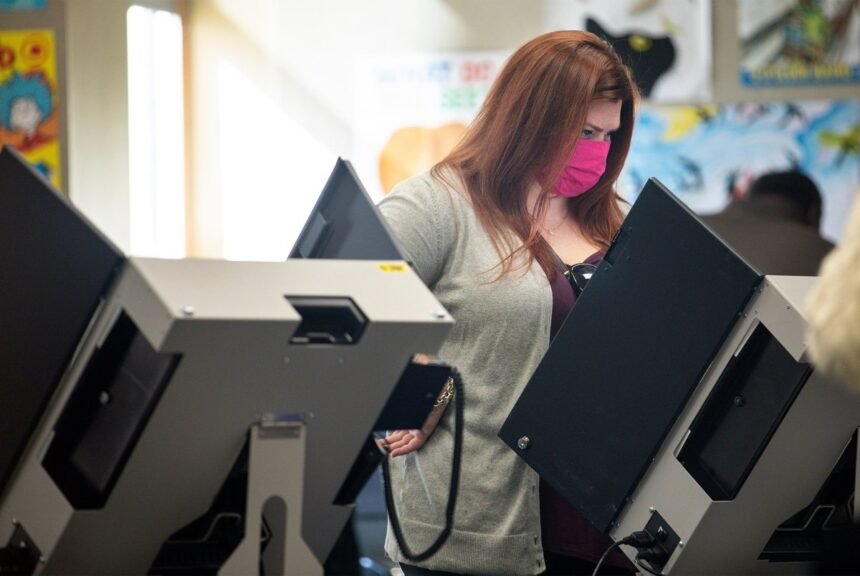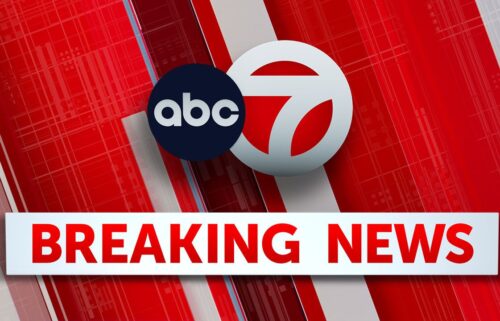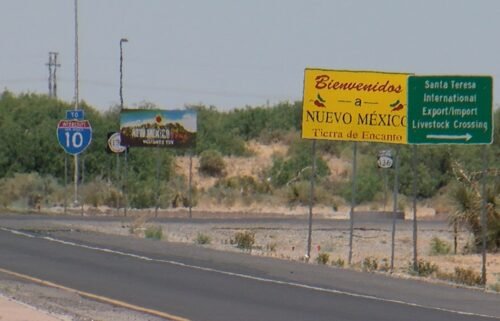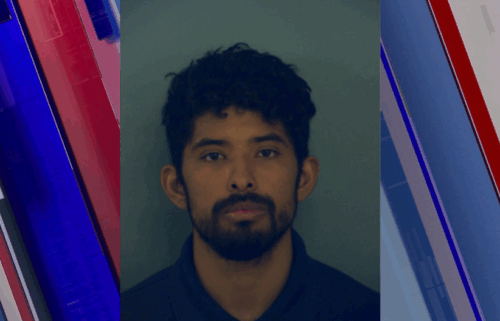Massive Texas voter turnout as state becomes political battleground

AUSTIN, Texas — Texas was unusually shaky ground for Republicans on Tuesday as a record surge of voters in America’s biggest red state, typically among the worst for turnout in the U.S., lined up to decide the most unpredictable election here in decades.
The high stakes in Texas rippled beyond whether President Donald Trump was genuinely at risk of becoming the first Republican presidential nominee since 1976 to lose the Lone Star State. Democrats, shut out of power in the Texas Capitol for a generation, were also within reach of seizing the majority in the state House chamber for the first time in nearly 20 years — an outcome that would mark a new era in what has been America’s foremost factory of conservative legislation.
Republican Sen. John Cornyn was also taking seriously a challenge from Democrat MJ Hegar in what was coming down to a second surprisingly close U.S. Senate race in Texas in as many years. Even progressive congressional challengers who back the Green New Deal were presenting serious challenges to longtime GOP incumbents in districts that run through some of Texas' most conservative counties.
Turnout in Texas was massive, and already at record levels.
Nearly 10 million Texans cast ballots in person or by mail during the three weeks of early voting, surpassing the number of ballots cast in the 2016 election. Elections experts predicted the number of votes could surpass 12 million, which would amount to more than 70% turnout — a striking level for a state that was among the worst for turnout in 2016.
The avalanche of votes reflected high enthusiasm and signs that Texas, where Republicans have coasted in lopsided elections for decades, was rapidly transforming into a battleground.
The road to Election Day in Texas was littered with legal battles over voting access in the middle of a pandemic. Whereas the vast majority of states are allowing widespread mail-in voting because of coronavirus fears, Texas is only one of five that refused, choosing instead to expand early voting by one week.
On Monday, a federal judge rejected a last-ditch effort by GOP activists to toss out nearly 127,000 votes in Houston that were cast at drive-in polling centers. Later Monday night, a federal appeals court panel denied the group's request to halt drive-thru voting in Harris County on Election Day.
Jarred Woodfill, a former Harris County GOP chairman who brought the lawsuit, has accused Harris County officials of trying to use their office to help Democrats.
“If Harris County goes against Trump in large enough numbers, then we could lose Texas. And if Trump loses Texas then we lose the national election,” Woodfill said after the ruling. “As far as I’m concerned this is ground zero.”
Polls suggested a closer-than-normal race in Texas — which Trump won by 9 points in 2016 — although the president gave little indication of outward concern. He didn’t campaign in Texas down the stretch, focusing instead on tossup battles in Florida, Arizona and Pennsylvania.
Democrat Joe Biden did not campaign in Texas either — frustrating Texas Democrats who pleaded with the former vice president to make a bigger push with his chances here looking remarkably viable. He instead ran a relatively small campaign in Texas, and while vice presidential nominee Kamala Harris devoted one of the race's final days to a swing through Texas, Biden left the heavy lifting to millions of dollars that Democrats poured into down-ballot races to oust vulnerable GOP state lawmakers and members of Congress.
Democrats need to flip just nine seats to take control of the state House for the first time since 2002. Doing so would give them a blockade against Republican measures on abortion, immigration and voting rights that have roiled the Texas Capitol for years. It also would give Democrats a say in the redistricting process.
Their targets include nine Republican-held districts in the Dallas, Houston and San Antonio areas that Democrat Beto O’Rourke carried in his narrow U.S. Senate loss in 2018.




